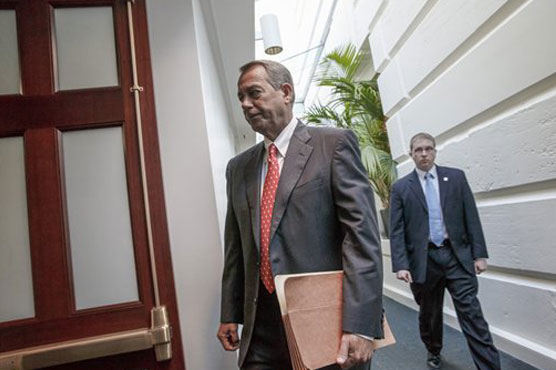Spending bill teeters amid Democratic discontent

Top leaders are intent on guaranteeing bill's passage to prevent government shutdown.
WASHINGTON (AP) Growing opposition among Democrats and persistent opposition from ultra-conservative Republicans has left a $1.1 trillion government-wide spending bill teetering as many lawmakers find more in the measure to dislike than like.
The bill faces its first test in the House of Representatives on Thursday and Congress must pass the bill in order to avoid another government shutdown but doubts over the bill s passage are growing.
Two items are particularly toxic to Democrats whose votes will be needed to pass the measure, neither of which was disclosed until late in this week s negotiations on the bill. One would weaken the regulation of risky financial instruments and another would allow rich people to flood political parties with more cash.
At the same time, ultra-conservative Republicans remained unhappy that their leaders didn t use the bill to try to block President Barack Obama s controversial recent moves on immigration.
Top leaders from both parties in the House and the Senate, however, are intent on guaranteeing the bill s passage to prevent a government shutdown Thursday midnight.
The compromise spending bill will permit virtually the entire government to operate normally until the fiscal ends next year on Sept. 30, with the exception of the Homeland Security Department.
Funds for that agency will run out on Feb. 27, when Republicans are expected to try to use the expiration as leverage to force President Barack Obama to roll back a decision suspending the threat of deportation for an estimated 4 million immigrants living in the country illegally.
The measure adheres to tight budget caps negotiated previously between the White House and Republicans. It also includes several provisions to fulfill Republican policy objectives, including significantly weakening new regulations that require banks to set up separate affiliates to deal in the more exotic and riskier forms of complex financial instruments called swaps.


